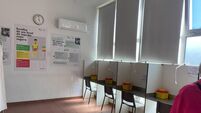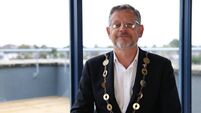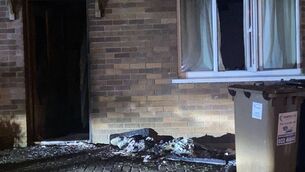Social prescribing offers a way out of isolation in east Cork

Nora Conway:'You sit down with that person, listen to them, tease out the issues, and co-produce a care plan for them.' Picture: Howard Crowdy
Cork woman Mary O’Reilly was hospitalised for three months over the pandemic with sepsis. Her husband died on Christmas Eve — she had not been able to see him for many months before his death.
After being discharged from hospital, Ms O'Reilly's mobility was badly reduced and her family in the UK could rarely visit due to Covid restrictions.













